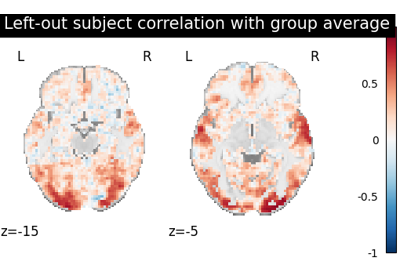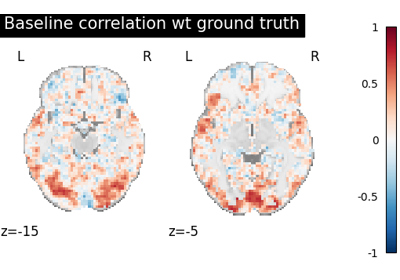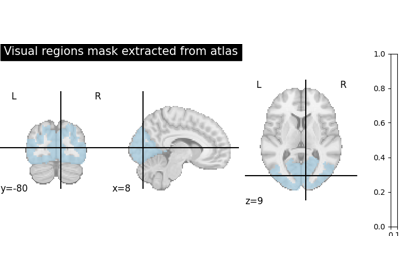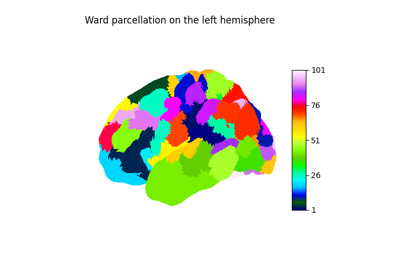Note
This page is a reference documentation. It only explains the class signature, and not how to use it. Please refer to the user guide for the big picture.
fmralign.alignment.pairwise_alignment.PairwiseAlignment¶
- class fmralign.alignment.pairwise_alignment.PairwiseAlignment(method='identity', labels=None, n_jobs=1, verbose=0)[source]¶
Performs pairwise alignment between two subjects.
This class performs source-to-target alignment of two subjects’ data. It supports various alignment methods and can process data in parallel.
- Parameters:
- methodstr or a BaseAlignment instance, default=”identity”
The alignment method to use. It can be a string representing the method name or an instance of a class derived from BaseAlignment. Available methods include: [“identity”, “procrustes”, “ot”, “sparseuot”, “ridge”].
- labelsarray-like or None, default=None
Describes each voxel label’s in the case of non-overlapping parcels. If provided, local alignments can be performed in parallel. If None, global alignment is performed across all features.
- n_jobsint, default=1
Number of parallel jobs to run. -1 means using all processors.
- verboseint, default=0
Verbosity level. Higher values provide more detailed output.
- Attributes:
- labels_array-like
Validated labels used during fitting.
- method_str
Validated alignment method used during fitting.
- fitted_estimatorBaseAlignment object
List of fitted alignment estimators, one per subject.
Examples
>>> from fmralign import PairwiseAlignment >>> X = np.random.rand(10, 5) >>> Y = np.random.rand(10, 5) >>> test_data = np.random.rand(8, 5) >>> aligner = PairwiseAlignment(method="procrustes") >>> aligner.fit(X, Y) >>> aligned_data = aligner.transform(test_data)
- fit(X, Y)[source]¶
Fit the pairwise alignment model to the data.
- Parameters:
- Xarray-like
Source data for alignment of shape (n_samples, n_features).
- Yarray-like
Target data for alignment of shape (n_samples, n_features).
- get_metadata_routing()¶
Get metadata routing of this object.
Please check User Guide on how the routing mechanism works.
- Returns:
- routingMetadataRequest
A
MetadataRequestencapsulating routing information.
- get_params(deep=True)¶
Get parameters for this estimator.
- Parameters:
- deepbool, default=True
If True, will return the parameters for this estimator and contained subobjects that are estimators.
- Returns:
- paramsdict
Parameter names mapped to their values.
- set_output(*, transform=None)¶
Set output container.
See Introducing the set_output API for an example on how to use the API.
- Parameters:
- transform{“default”, “pandas”, “polars”}, default=None
Configure output of transform and fit_transform.
“default”: Default output format of a transformer
“pandas”: DataFrame output
“polars”: Polars output
None: Transform configuration is unchanged
Added in version 1.4: “polars” option was added.
- Returns:
- selfestimator instance
Estimator instance.
- set_params(**params)¶
Set the parameters of this estimator.
The method works on simple estimators as well as on nested objects (such as
Pipeline). The latter have parameters of the form<component>__<parameter>so that it’s possible to update each component of a nested object.- Parameters:
- **paramsdict
Estimator parameters.
- Returns:
- selfestimator instance
Estimator instance.
- transform(X)[source]¶
Transform the input arrays using the fitted model.
- Parameters:
- Xdict of array-like
Dictionary where keys are subject identifiers and values are array of subject data. Each array should have the same number of samples and features.
- Returns:
- dict of array-like
Dictionary with transformed subject data.



